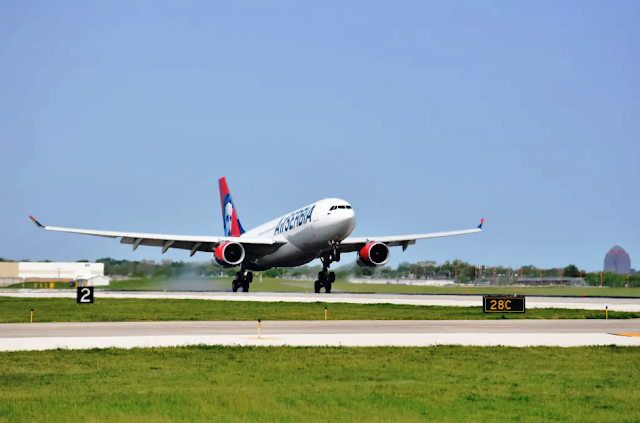Air Serbia becomes one of Europe’s fastest growing airlines
Air Serbia has positioned itself as one of Europe’s fastest growing airlines this summer in terms of added flights and capacity compared to the pre-pandemic 2019. During the upcoming third quarter (July - September) the Serbian carrier has 1.734.156 seats on sale, up 50% on the same period in 2019, which was its busiest to date. It will operate 14.239 flights, an increase of 42.9%. Its Available Seat Kilometres (ASK) - a measure of an airline's carrying capacity to generate revenue, taken from multiplying the available seats on any given aircraft by the number of kilometres flown, will amount to 2.131.143.013, up 55.6%.
Since the coronavirus pandemic, Air Serbia has launched over forty routes. Destinations which the carrier served back in 2019 but does not do so today include Beirut, Helsinki and Nice from Belgrade, as well as the airports in Kiev and Krasnodar, which are closed due to the war in Ukraine. Out of Niš, the airline no longer serves Bologna, Budapest, Rome, Friedrichshafen, Baden Baden, Gothenburg, Hanover, Salzburg and Nuremberg. Out of the cities it served in Q3 2019, the airline has increased capacity the most on its Belgrade - Tivat route adding a whopping 61.928 seats between the two cities during the three-month period this year. It is followed by Barcelona with an extra 30.472 seats and Larnaca with an additional 29.020 seats.
During the busiest part of the year, the airline has put the most capacity on its Tivat service. Serving the coastal city from Belgrade, Niš and Kraljevo, the carrier has a total of 152.524 seats on the route in the third quarter, followed by Istanbul with 87.056 and Zurich with 79.464 seats. On the other hand, the biggest decline in capacity (excluding discontinued routes) is on its London Heathrow service, with 25.276 fewer seats. Four years ago, in addition to its regular Heathrow flights, Air Serbia operated an additional daily scheduled service to London with Etihad Airways equipment in order for the Emirati carrier to retain ownership of the slots which it inherited from its former equity partner Jet Airways, which went into liquidation. This resulted in Air Serbia maintaining sixteen weekly flights between the two cities during the height of summer. The operational costs of the second daily flight was paid for by Etihad Airways.



0 Response to "Air Serbia becomes one of Europe’s fastest growing airlines"
Post a Comment